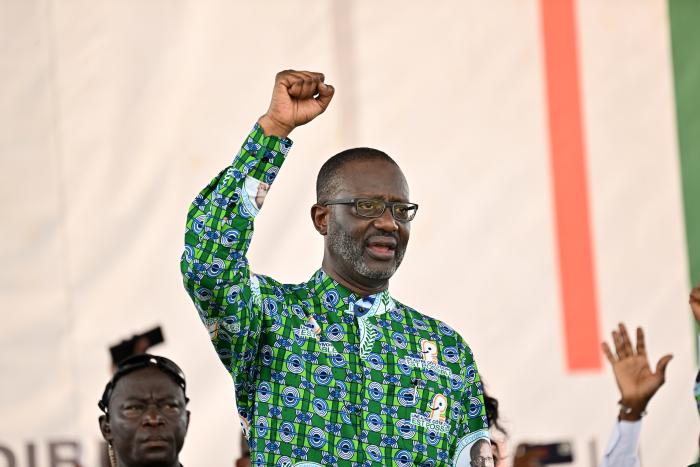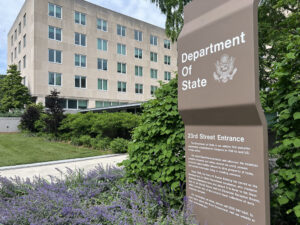In early 2025, former Credit Suisse CEO Tidjane Thiam relinquished his French citizenship to meet Ivorian constitutional requirements and solidify his bid for the Ivory Coast presidency in October 2025. The renunciation, confirmed by the French government gazette, removed a key legal obstacle under Ivorian law which bars dual citizens from presidential candidacy and paved the way for his unanimous nomination by the Democratic Party of Côte d’Ivoire (PDCI). Thiam’s decision sparked legal challenges over his eligibility, intense public debate on national identity, and reactions from domestic stakeholders and international observers alike. As a high‑profile technocrat and political newcomer, Thiam faces the dual task of uniting a fractured opposition and presenting a compelling vision for sustainable economic growth in West Africa’s leading cocoa producer,
On February 7, 2025, former Credit Suisse chief executive Tidjane Thiam formally renounced his French citizenship, a strategic move to comply with the Ivory Coast’s constitutional mandate that presidential candidates hold sole Ivorian nationality. The notification appeared in the Journal Officiel de la République Française, signaling France’s acceptance of his relinquishment and clearing the way for his presidential candidacy scheduled for October 2025. Thiam’s announcement came amid mounting speculation about his political ambitions after he was elected leader of the PDCI the country’s oldest political party in December 2023
Tidjane Thiam: Profile & Career
Early Life and Education
Tidjane Thiam was born on July 29, 1962, in Abidjan, Ivory Coast, into a prominent Ivorian family. He studied advanced mathematics and physics at École Polytechnique and the Paris School of Mines, later earning an MBA from INSEAD.
Corporate Leadership
Thiam joined McKinsey & Company in 1986, rising to partner before returning to the Ivory Coast in 1994 to lead the National Bureau for Technical Studies (BNETD). He transitioned back to the private sector in 2000, eventually serving as CFO (2007–2009) and then CEO (2009–2015) of British insurer Prudential, before becoming Credit Suisse’s CEO from March 2015 to February 2020. Under his leadership, Credit Suisse saw strategic transformation but also navigated significant regulatory and reputational challenges.
Return to Ivory Coast Politics
After departing Credit Suisse, Thiam founded Freedom Acquisition Corp., a special‑purpose acquisition company, and joined the International Olympic Committee in 2019. In August 2022, he returned to Abidjan, meeting President Alassane Ouattara and former President Henri Konan Bédié, signaling his reentry into Ivorian public life.
Political Landscape of Ivory Coast
PDCI’s Historic Role
The Democratic Party of Côte d’Ivoire (PDCI), founded in 1946, ruled the country under Félix Houphouët‑Boigny until 1999 and later held sway through alliances and opposition coalitions.
Recent Electoral Dynamics
In 2018, incumbent President Ouattara won re-election amid controversy, and the PDCI’s boycott of the 2023 legislative elections weakened its parliamentary influence, creating an opening for new leadership.
PDCI Leadership & Eligibility Controversy
Thiam’s December 2023 Election
On December 22, 2023, Thiam secured 96.48 percent of votes to become PDCI president, defeating his sole rival, Jean‑Marc Yacé.
Legal Challenges
Shortly after his election, Thiam faced two lawsuits questioning his eligibility: one alleged he violated PDCI statutes by holding foreign nationality and another contested his Ivorian citizenship under the national code.
Court Proceedings
The Abidjan Tribunal of First Instance scheduled Thiam’s hearing for February 27, 2025, but plaintiffs withdrew the first complaint on February 23, and a second lawsuit was dismissed in early April, solidifying his party leadership status.
Citizenship Renunciation: Process & Legal Framework
Ivorian Constitutional Requirement
Article 35 of the Ivorian Constitution mandates that presidential candidates hold Ivorian nationality exclusively, prohibiting dual citizens from running.
French Decree
On March 20, 2025, the French government published the formal decree in its official gazette, legalizing Thiam’s relinquishment of citizenship and aligning with his February announcement.
Bi-Nationality Debate
Thiam’s case reignited national debate over dual citizenship, a practice once commonplace among Ivorian elites, raising questions about identity, talent repatriation, and the diaspora’s role in politics.
Implications for October 2025 Election
PDCI Nomination
On April 18, 2025, Thiam was unanimously nominated by the PDCI as its presidential candidate, affirming party unity behind his leadership.
Competitive Field
Thiam joins a field potentially including former Trade Minister Jean‑Louis Billon and a yet‑to‑announce President Ouattara bid, setting up a high‑stakes contest in a nation pivotal to regional stability.
Policy Platform
Positioning himself as a technocrat and reformer, Thiam advocates economic diversification, digital transformation, and youth employment, contrasting with the incumbents’ continuity message.
Domestic & International Reactions
Political Establishment
Ouattara’s coalition has downplayed the renunciation, framing it as a routine procedural step, while opposition figures praised Thiam’s commitment to constitutional norms.
Civil Society & Diaspora
Ivorian civil‑society groups welcomed the move as a testament to democratic adherence, though some diaspora organizations lamented the loss of a high‑profile French‑Ivorian bridge figure.
International Observers
The African Union and ECOWAS commended the procedural clarity, noting that timely citizenship adjustments can bolster electoral credibility in emerging democracies
Tidjane Thiam’s relinquishment of French citizenship represents both a strategic compliance with Ivorian electoral law and a symbolic commitment to national service. As he embarks on what may be the most consequential political campaign of his career, Thiam must leverage his global experience to address Ivory Coast’s pressing challenges economic diversification, youth unemployment, and post‑conflict reconciliation while uniting a diverse electorate under his vision for a modern, inclusive state. With the October 2025 vote looming, the success of his bid will hinge on balancing technocratic credibility with grassroots engagement in one of West Africa’s most dynamic democracies.






